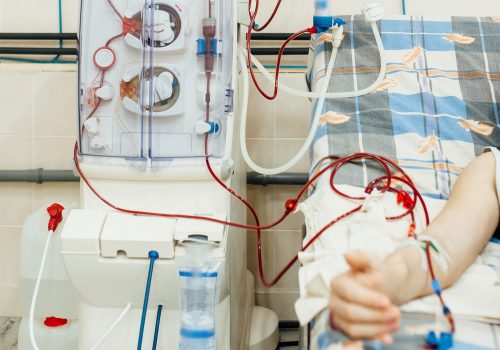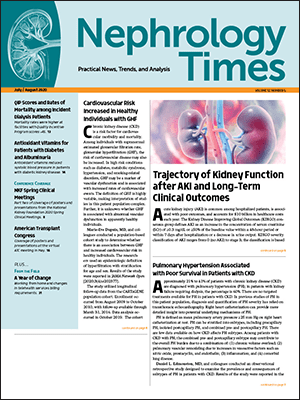
More than one-third of patients diagnosed with end-stage renal disease (ESRD) were not receiving care from a nephrologist at the time of the diagnosis. Megan Urbanski, PhD,and colleagues conducted a study to examine the coping styles and strategies used by patients when diagnosed with ERSD; comparisons were made among patients with varying amounts of pre-ESRD nephrology care. Results of the study were reported at the NKF Spring Clinical meetings in a presentation titled Coping with an ESRD Diagnosis: Differences among Patients According to Presence of Pre-ESRD Nephrology Care.
The researchers utilized a mixed-methods study design. Patients with varying amounts of pre-ESRD nephrology care participated in semi-structured interviews that examined coping styles and strategies relating to the ESRD diagnosis and initiation of renal replacement therapy. Patients were grouped according to amount of pre-ESRD nephrology care they had received.
Applied thematic analysis was used to analyze interview results to deductively and inductively create codes. Transcripts of interviews conducted to date were coded independently by two members of the research team. The researchers also collected relevant sociodemographic data and administered three coping-related validated measures. Data collection is ongoing.
To date, 40 patients with varying amounts of pre-ESRD nephrology care have participated in the study. Results of interim analyses indicate that there are variations in the coping styles and strategies used by diagnosed patients according to the amount of pre-ESRD nephrology care. Four qualitative themes have been identified; 1) psychological distress; (2) adjustment to illness issues; (3) influences on primary appraisal of the stressor; and (4) secondary appraisal of the stressor.
There are variations between groups in mean scores on the Denial, Acceptance, and Active Planning subscales of the Brief COPE measure and on the Coping Strategies Index-Short Form Emotion-Focused Disengagement subscale. Patients with no history of pre-ESRD nephrology care have the highest mean scores.
In summary, the researchers said, “The qualitative and quantitative differences in coping with the ESRD diagnosis and renal replacement therapy initiation according to amount of pre-ESRD care suggest further exploratory and targeted intervention research is necessary to help all patients optimally adjust to this life-altering illness.”
Source: Urbanski M, Dumenci L, Gadegbeku C, Siminoff L, Waterman A, Gardiner H. Coping with an ESRD diagnosis: differences among patients according to presence of pre-ESRD nephrology care. Abstract of a presentation at the National Kidney Foundation 2020 Spring Clinical Meeting; abstract #296.







 © 2025 Mashup Media, LLC, a Formedics Property. All Rights Reserved.
© 2025 Mashup Media, LLC, a Formedics Property. All Rights Reserved.